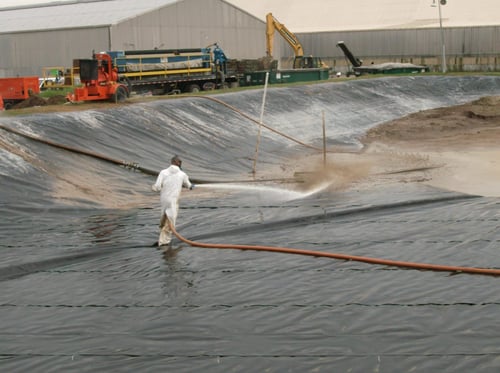
Choosing between a centrifuge and a plate and frame filter press for your sludge dewatering can be difficult if you don’t know their different strengths and weaknesses. While both technologies will effectively produce a dry, solid cake, there are quite a few differences between the two. The following information will help you decide if either a centrifuge or a plate and frame filter press is the best technology for your specific needs.
Plate and Frame Filter Press
Filter presses are designed to hold a specific volume of material and separate the liquids and solids through pressure filtration. A slurry is pushed into the filter press and subjected to high pressure for dewatering. This type of equipment can be used in a variety of applications in both industrial and municipal fields.
What are the Advantages?
The filter press has many advantages that other dewatering methods cannot provide. These include:
- Fewer parts for easy maintenance
- Captures a high amount of solids
- In some areas, it is the only device capable of producing a cake that is dry enough to meet landfill requirements
When Should I Use It?
The filter press is generally used when sludge characteristics are poor and require more than 35% cake dryness. If sludge characteristics are expected to change, or if minimal conditioning is needed, the filter press can also be helpful.
Centrifuge
A centrifuge is a machine that puts an object into rotation around a fixed axis and uses centrifugal force to separate solid materials from liquids. As the materials are put into rotation, the denser substances are forced outward while the lighter particles are separated and move toward the center. There are many different types of centrifuges that are used for different purposes. Industrial scale centrifuges are often used in manufacturing and waste processing to separate solids and liquids.
What are the Advantages?
- Centrifuge is good for the dewatering or separating fats, oils and greases
- They allow for the processing of large amounts of materials within a small space, giving larger plants an advantage
- Centrifuge can process more volume than a plate and frame filter press
When Should I Use It?
High RPM centrifuge processing is most often used for processing oily sludge. Centrifuges are best used when you have larger volume and lower solid contents. Utilizing this processes will generally produce 18% to 25% solids by weight and is typically reserved for situations where the main goal is for oil recovery and when larger volume processing is necessary.
The Bottom Line
In short, the filter press consumes less energy and is easy to maintain. The filter press does requires a larger footprint on site. The centrifuge is best used for processing large volumes of sludge but has high power and maintenance costs. To learn more about what will work best for your specific project, contact Handex today!



